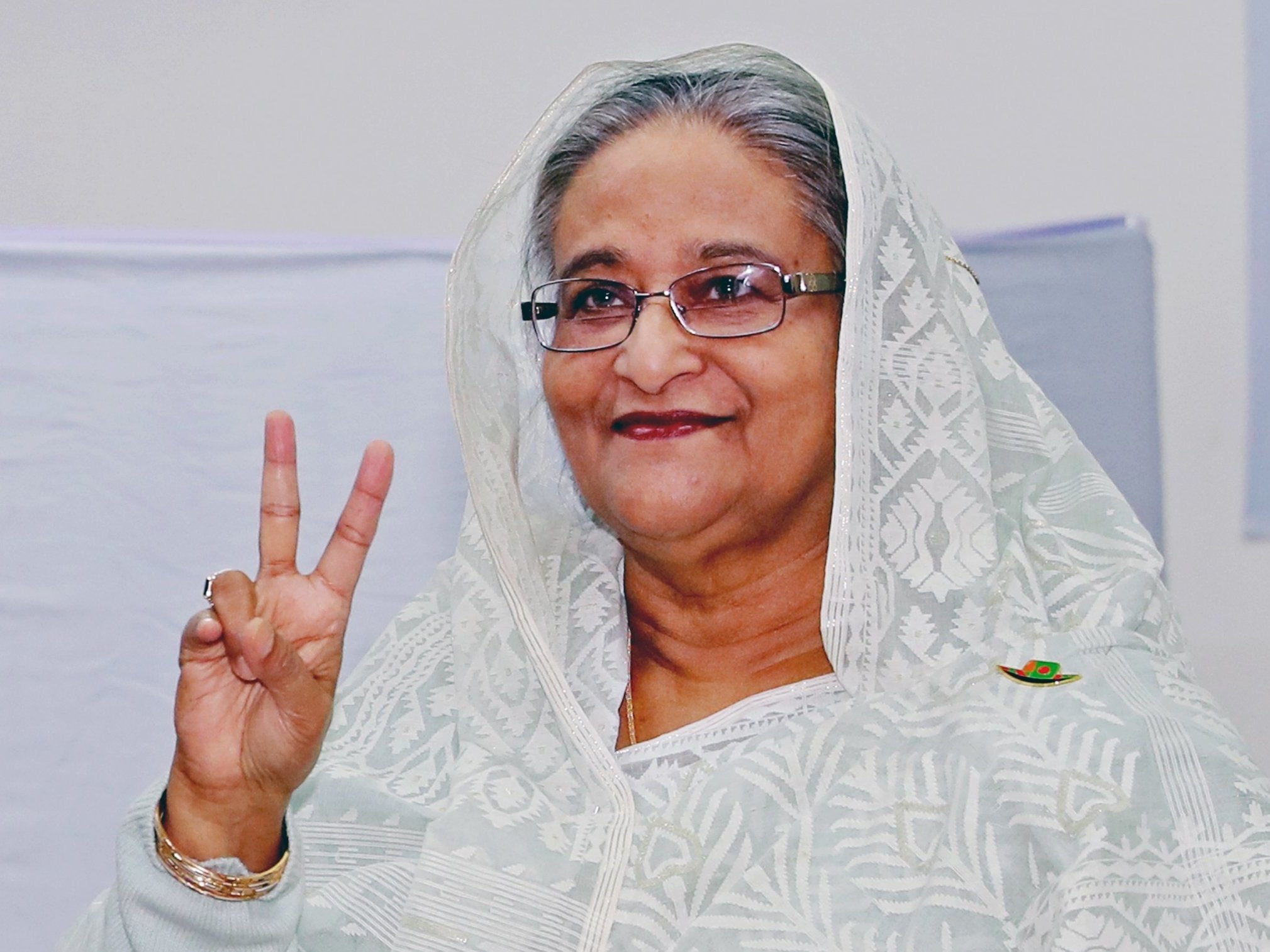Bangladesh elections: Sheikh Hasina's party wins large majority amid accusations of vote-rigging
Police say at least 17 people were killed during violent clashes on polling day

The ruling party of Bangladesh has won its third straight general election with a massive majority amid allegations of widespread vote-rigging.
Prime minister Sheikh Hasina’s Awami League took 287 of the 300 parliamentary seats while the opposition Bangladesh Nationalist Party (BNP), which boycotted the last poll in 2014, claimed just six.
The 71-year-old’s victory was announced on Monday morning in a televised speech by Helal Uddin Ahmed, secretary of the country’s election commission.
Opposition leader Kamal Hossain, 82, called the election “farcical” and asked for the commission to order a fresh vote under a neutral administration “as soon as possible”.
“The whole election was completely manipulated,” Mr Hossain said. “It should be cancelled. We’ve had bad elections in the past, but I must say that it is unprecedented how bad this particular election was. The minimum requirements of free and fair election are absent.”
Opposition candidates reported witnessing ballot-stuffing and vote rigging by ruling party activists, who also barred opposition polling agents from voting centres, he added.
An election commission spokesman said: “Allegations are coming from across the country and those are under investigation.” It confirmed that fresh votes would be held in one seat where the poll was marred by violence.
Police confirmed that at least 17 people were killed in clashes on polling day, including seven ruling party workers and five BNP workers.
It was also reported that a TV station had been shut down and high-speed mobile internet services had been shut down to prevent people organising rallies.
“The election is a cruel mockery with the nation,” said BNP secretary general Mirza Fakhrul Islam Alamgir. “This type of election is harmful to the nation.”

Ms Hasina has been accused of human rights abuses and a crackdown on the media during a decade-long rule that critics have described as increasingly “authoritarian and undemocratic.”
However the prime minister is also credited with improving the economy and party leaders have indicated that one of her first tasks in office will be to raise minimum wages for workers in Bangladesh’s massive garments industry, the world’s second biggest after China.
Her son, Sajeeb Wazed, called the opposition “sore losers making false allegations” while the Awami League’s joint secretary Jahangir Kabir Nanak said the opposition’s refusal to accept voting results was “not unusual”.
“It is their old habit,” he said referring to the BNP, which has alternated in power with the Awami League for most of the last three decades. “We thought they would welcome this election for a change. But they could not change their habit.”
The ruling party has also denied allegations that scores of opposition activists were arrested in the months leading up to the election on fictitious charges.
It was the first election in which the BNP campaigned without its leader Khaleda Zia, who has been in jail since February on corruption charges that she says are politically motivated.
Ms Zia has alternated in power with Ms Hasina for most of the last three decades.
Additional reporting by Reuters
Join our commenting forum
Join thought-provoking conversations, follow other Independent readers and see their replies
Comments
Bookmark popover
Removed from bookmarks